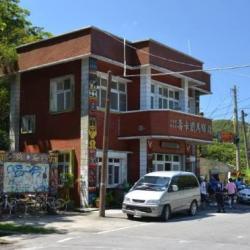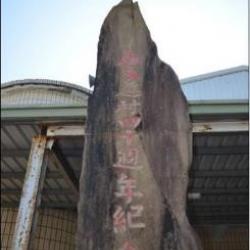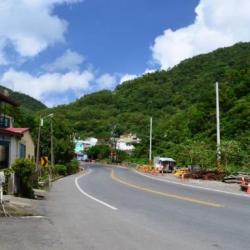The Caopu Hamlet is located in the upper reaches of Fenggang River in Shizi Township, Pingtung County. It was formed by the migration of residents from Caopuhoushe and Qulieyoushe at the end of the Japanese occupation. Due to the limited flat living space, the houses dispersed everywhere, divided into Upper and Lower Caopu. The current Caopu Elementary School was moved from Caopuhoushe to its current location in 1940.
Yongsen

Shouqia is located at a small mountain pass at the end of the Central Mountain Range, about 500 meters above sea level, at the junction of Shizi Township in Pingtung County and Daren Township in Taitung County. Not only is it located on the Fenggang Beinan Historic Trail, it is also where the Nanhui Road passes through today. In fact, Fenggang Beinan Historic Trail was built under the policy of excavating mountains to manage indigenes during the Qing period. The excavation mainly went along the river heading north-east from Fenggang. It does not overlap with Nanhui Road but runs alongside the tribal passage all the way to Shouqia. Finally, arriving at Dawu from Rumulu River.

Yongsen Hamlet or Mulinaga is located in Daren Township, Taitung County. The hamlet was formed by the migration of people who originally lived in old Dagu and neighboring Gutanas and Enivaian hamlets in 1953. Due to the inconvenience of living in a steep mountainous area , the tribesmen of old Dagu hamlet chose to live on the land where Morinaga Hoshinaen Co. Ltd. specialized in planting quinine, coffee and tea during the Japanese occupation.
The traditional Paiwan name of old Dagu is Tjarilik, which means steep mountains, while the traditional place name, Gutanas, means the hamlet on the cliffs, and Enivaian refers to the place where there are sacred and big trees. The name of the current hamlet is Yongsen or Mulinaga, which is taken from the farm’s name “Morinaga”.
